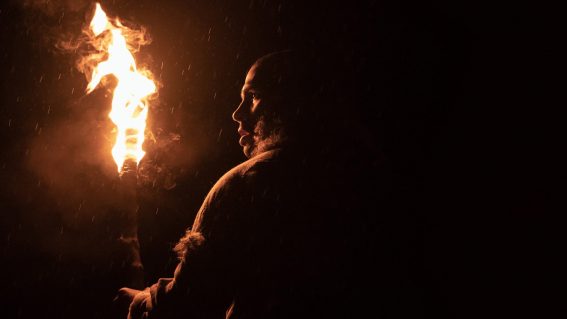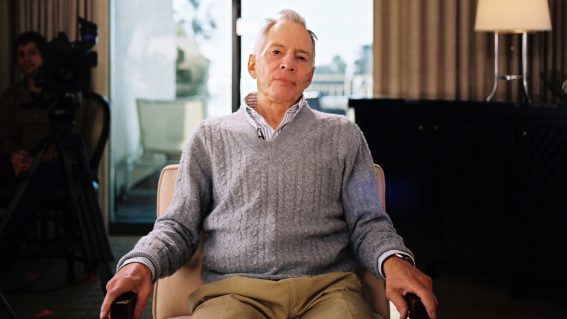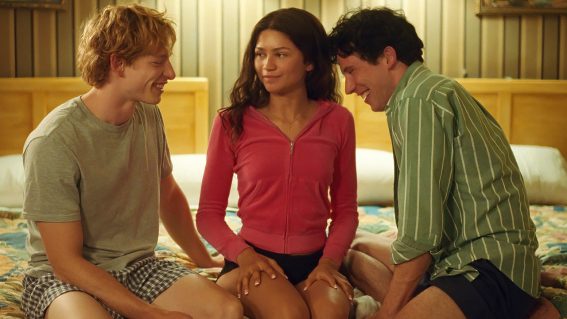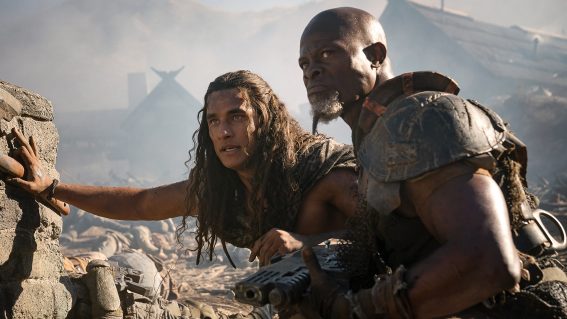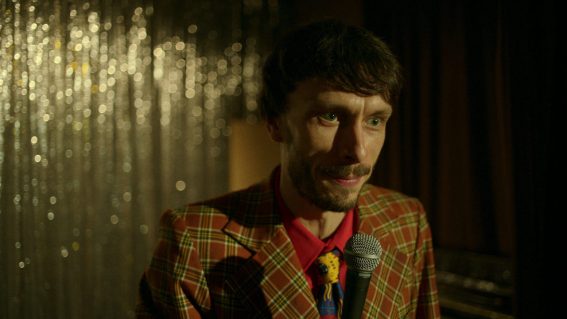The sensational Dune will swallow you whole, like some kind of subterranean invertebrate
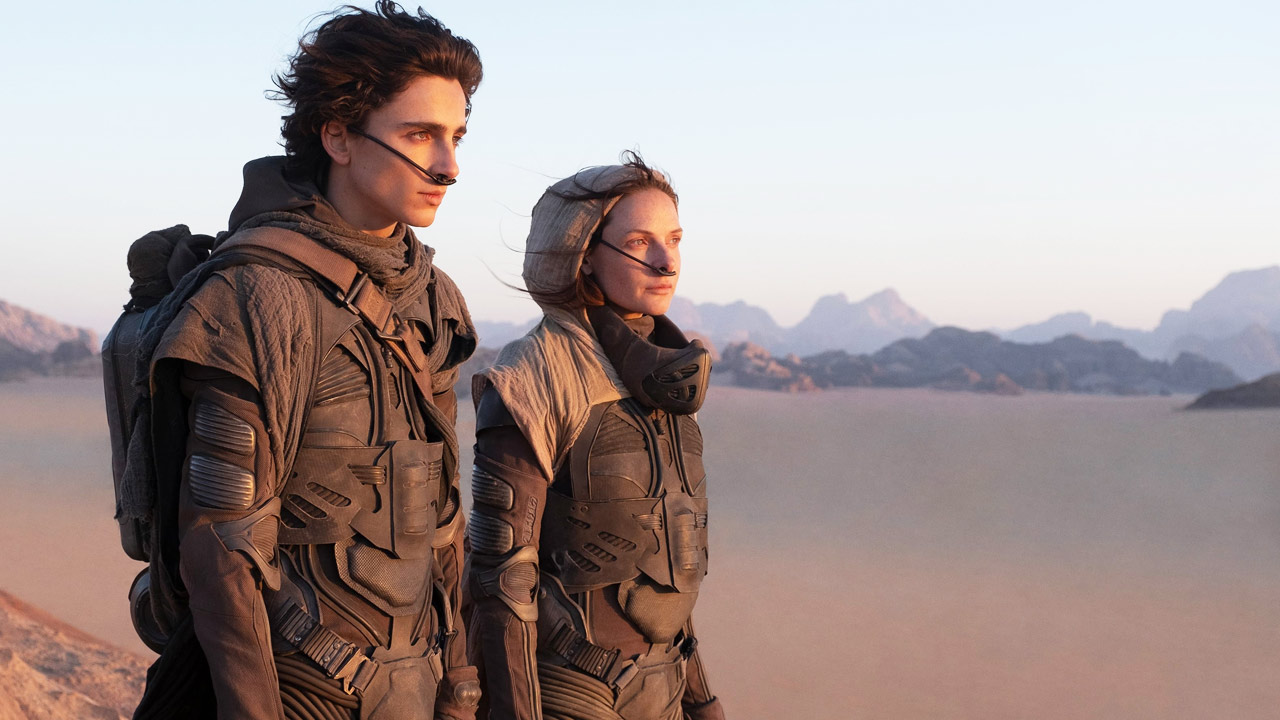
Denis Villeneuve directs the hell out of this highly ambitious adaptation of Frank Herbert’s seminal novel, creating moments of spellbinding spectacle, writes Matt Glasby.
Since it was first published in 1965, Frank Herbert’s epic sci-fi novel has had quite a shelf-life. As well as—deep breath now—five Herbert-penned sequels, there’s a series of prequels/sequels co-written by his son, a bad 1984 film directed by David Lynch, an indifferent 2000 miniseries, even a 1983 Iron Maiden song called To Tame a Land, because Herbert wouldn’t let them use the title.
Like Herbert, writer/director Denis Villeneuve is great at world-building, although his narratives sometimes run away from him—see Blade Runner 2049. Could he be the one to finally tame the material?
The first step he and co-writers Jon Spaihts and Eric Roth made was to cut the novel in half—a bold move seeing as a sequel isn’t yet guaranteed. Still, with part one running at a bladder-straining 155 minutes, they probably could have gone for a trilogy.
If you haven’t read the book, or at least the Wikipedia page, Dune is pretty hard to follow, but these are the basics.
In the future, the stewardship of the desert planet Arrakis is passed from House Harkonnen (aka the baddies), led by Baron Vladimir Harkonnen (Stellan Skarsgard), to House Atreides (the goodies), led by Leto Atreides (Oscar Isaac). This takes Leto’s family—including young Paul (Timothy Chalamet) and his mother Lady Jessica (Rebecca Ferguson, who’s only 12 years older than Chalamet)—to Arrakis, where they must win the hearts and minds of the local Fremen people, led by Stilgar (Javier Bardem). All this while mining a valuable hallucinogen known as “spice” and avoiding huge, marauding sand worms. Lawrence of Arabia never had it so tough.
Put simply, it’s your common-or-garden hero narrative, with Chalamet as a Jesus/Luke Skywalker/Neo figure slowly realising his power in the face of interplanetary tyranny. If it’s a little speechy and slow to begin with, at least Herbert’s words are brought to life by a world-class cast including Josh Brolin, Jason Momoa, Charlotte Rampling, Dave Bautista and Zendaya.
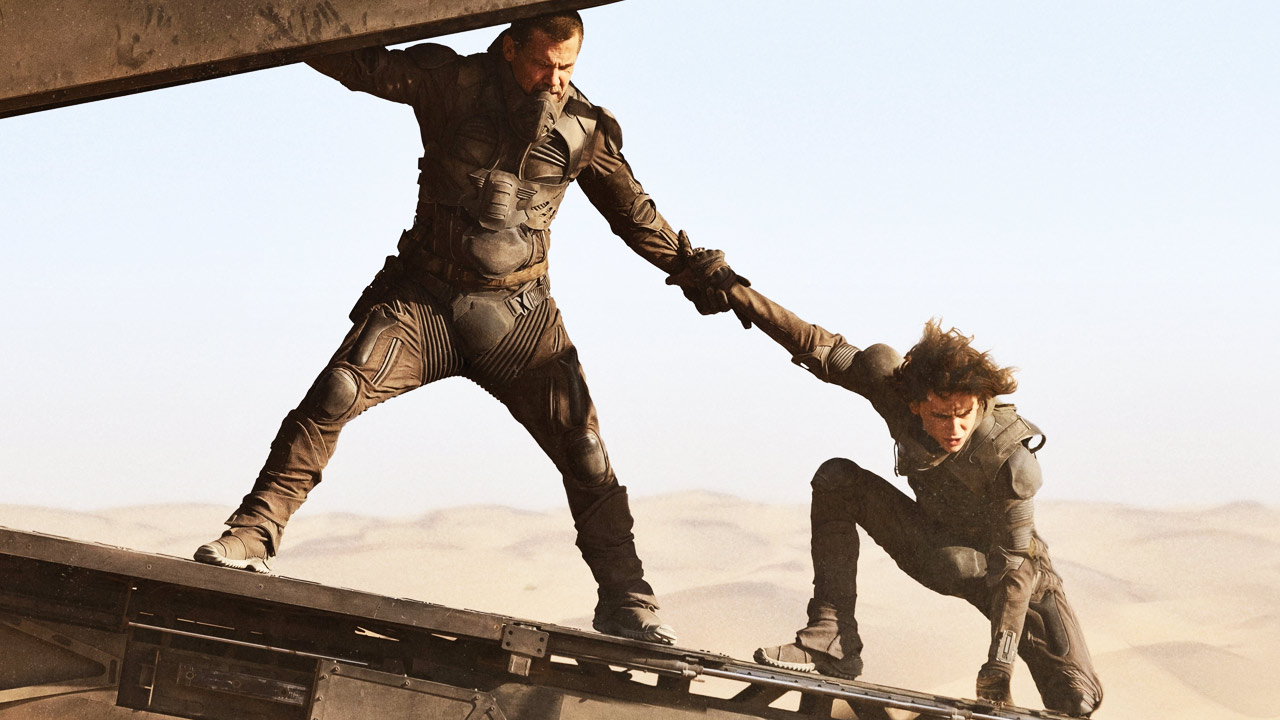
But it’s Villeneuve and his crew that really dazzle. Australian cinematographer Greig Fraser is an expert at capturing extraordinary landscapes (Zero Dark Thirty, Lion, The Mandalorian), and some of the shots in Dune are so beautiful that a certain type of bachelor will want to frame them and put them on his wall/make love to them.
Hans Zimmer’s sure-to-be-Oscar-winning score, which swells from rumbling bass to clamorous whispers to the mangled wail of a bagpipe, gives proceedings a suitably stirring heft. As anyone who’s seen Sicario or Incendies knows, Villeneuve is one hell of a director. And he directs the hell out of this, creating moments of spellbinding spectacle such as the Atreides’ huge spaceship emerging whale-like from roiling seas, or the sky over Arrakis split by fire as the Harkonnens attack, sending Paul and Lady Jessica out into the desert badlands.
Occasionally, the material does feel a little overly familiar. Aside from the Baron himself, who rubs his head a la Colonel Kurtz (Marlon Brando) in Apocalypse Now and, thrillingly, can levitate, the Harkonnens are the kind of generic goth baldies we’ve seen a hundred times before in the likes of Dark City. The Fremen, meanwhile, are often cast as cliched mystical natives, which isn’t helped by the eruptions of indigenous wailing on the soundtrack.
But the main reason for this over-familiarity is that film-makers have been ripping off Dune for years; Star Wars for instance borrowed its desert planet and visionary teen, turning the sandworms into a Sarlacc pit. No wonder Herbert was so touchy about protecting his IP. Although fatigue sets in just before the end—at which point we are informed, frustratingly, that “this is only the beginning!”—Villeneuve has achieved something beyond an impressive adaptation.
With streaming taking over the world, and the future of cinema at stake, his is a vision so huge, so overwhelming, that it demands to be seen on an IMAX-sized screen, so it can swallow you whole like some kind of subterranean invertebrate.
Dune may not be for everyone, but what it has in spades is an unshakable belief in its own world-building, from a drop of sweat trickling down the ear of a desert rodent to the massive shimmering tsunamis of sand. Now, how about that sequel?









